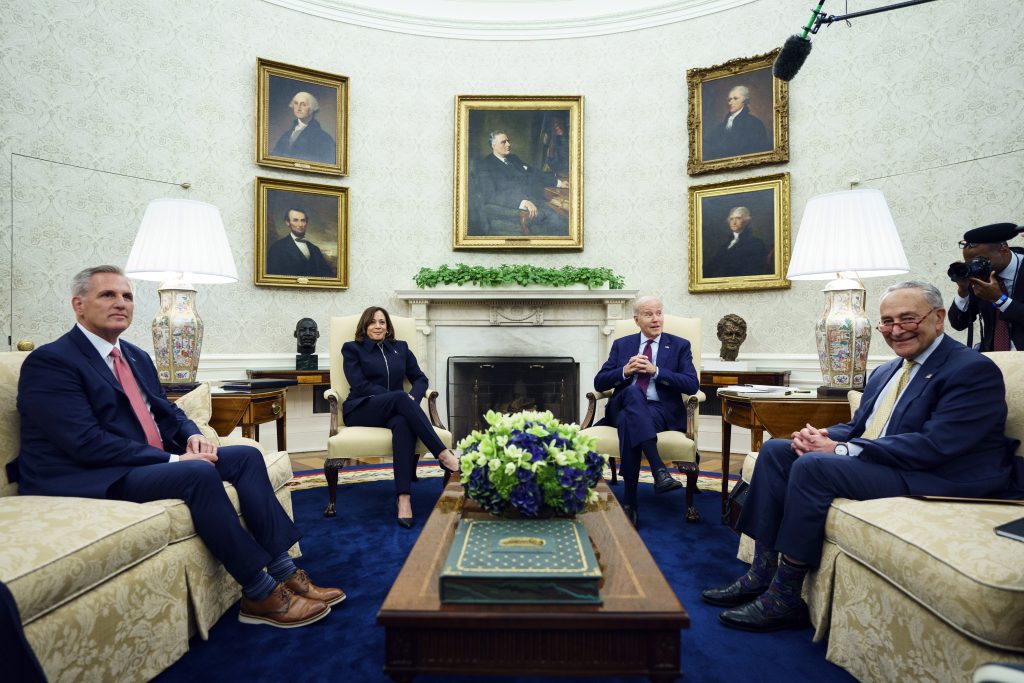With just weeks to go before the U.S. risks hitting the debt ceiling for the first time, negotiators are still trying to figure out who will do the negotiations.
House Speaker Kevin McCarthy told reporters shortly after a White House meeting that President Joe Biden had agreed to designate people to represent the White House in direct negotiations with his own team. Senate Majority Leader Chuck Schumer later said “a few additional players” will be added to the discussions, but deferred to Biden to provide specifics.
“The bottom line is the bipartisan negotiations that we’ve had are going to continue,” Schumer said.
It was both a sign of progress and an indication of the many hurdles that remain. The individuals designated by the White House — Steve Ricchetti, one of Biden’s longest-serving advisers and a key voice with Capitol Hill, and Office of Management and Budget Director Shalanda Young — suggest the administration is ramping up its level of engagement with the Hill.
Still, the White House meeting Tuesday — the second in as many weeks — broke up with no agreement between Biden and GOP congressional leaders on a path forward to avoid default or any preliminary agreements on policy. Tea leaves were difficult to read, at least initially, but both McCarthy and Schumer left the meeting citing progress.
McCarthy said that the “structure” of the negotiations had improved. He also said that Republicans and Democrats remain far apart on a potential deal, though he believes it’s still possible to get to an agreement by the end of the week. He added that it was “unfortunate we are where we are.”
“I think we set the stage to carry on further conversations,” McCarthy said. “The president agreed to appoint a couple people from his administration to sit down and negotiate directly with my team so I found that to be productive.”
The White House also called it a “productive and direct” meeting in a written statement. “The President emphasized that while more work remains on a range of difficult issues, he’s optimistic that there is a path to a responsible, bipartisan budget agreement if both sides negotiate in good faith and recognize that neither side will get everything it wants,” the statement said.
Jonathan Lemire contributed reporting







